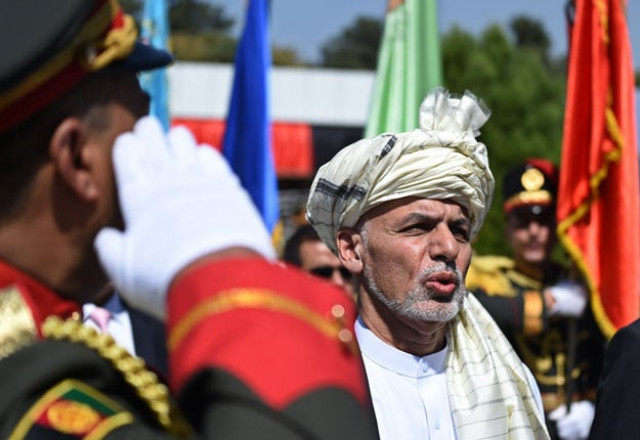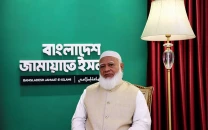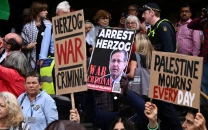Ties with Pakistan tense as Afghanistan celebrates independence
Cooperation between the turbulent neighbours battling fierce militant insurgencies is key to peace in Afghanistan

Afghan President Ashraf Ghani. PHOTO: AFP
Cooperation between the turbulent neighbours both battling fierce militant insurgencies is seen as key to peace in Afghanistan, since Pakistan is widely believed to wield considerable influence over the Taliban and allied militants.
In the meeting with Ambassador Syed Abrar Hussain, Afghanistan's foreign ministry expressed serious objections to the heavy artillery firing in the border province of Kunar, the ministry said in a statement late on Tuesday.
Read: Afghanistan summons Pakistani envoy, lodges protest over cross-border shelling
"Continuation of such movements by the Pakistan military ... will have adverse effects on bilateral relations," Afghanistan's deputy foreign minister said.
Initial reports from Afghan police in Kunar's Nari district said Pakistani troops started shooting across the border on Monday after they found one of their men dead at an outpost.
Afghan President Ashraf Ghani has worked in his first year in office to improve ties with measures such as intelligence sharing, but after bombs in Kabul killed dozens this month he furiously blamed Pakistan for "exporting war".
That anger was also felt on the streets of Kabul where the city's residents celebrated Independence Day on Wednesday.
"I've come to celebrate our Independence Day, we're celebrating against Pakistan," said city resident Mohammad Zamir, as drummers and dancers performed by the ruins of houses and shops destroyed by a massive truck bomb on Aug. 7.
Pakistan has condemned the recent attacks and blamed "spoilers and detractors" for trying to create mistrust between the two countries, which are divided by a border defined in a 1919 treaty recognising Afghan independence from the British empire, although the country was never fully colonized. The treaty is celebrated on Aug. 19.
Read: US military probe of Afghan shooting found Bales' camp had lax discipline
Many feel Afghanistan's sovereignty is still tested by the presence of foreign troops and militants. The Taliban issued a statement on Tuesday saying Afghans should fight for freedom as their forefathers did from the British.
Ties with Pakistan have also been roiled by the news in July of the death of Taliban leader Mullah Mohammad Omar two years ago. Afghanistan says he died in a Karachi hospital and that authorities concealed this from Kabul.
The announcement appeared to cause rifts at the top of the militant group fighting for power in Afghanistan, and cast doubts over an incipient peace process, with a round of talks postponed last month.
An Afghan delegation to Pakistan last week led by Foreign Minister Salahuddin Rabbani demanded "serious and practical measures" from Islamabad over terrorist attacks it said came from across the border.



















COMMENTS
Comments are moderated and generally will be posted if they are on-topic and not abusive.
For more information, please see our Comments FAQ